Exhibition: Lobi Art of Burkina Faso
Art exhibition: The Lobi. The complexity behind simplicity (Jesús Arjona Muñoz)

Curatorial concept: Jesús Arjona Muñoz
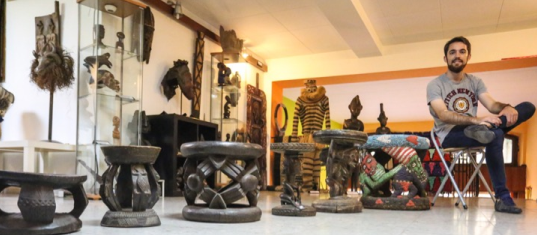
Exhibition Concept “The Lobi. The complexity behind simplicity”
African tribal art, socially, is known to be a simple art, gross, tribal in its derogatory form... It breaks the canon of what society has assimilated as beauty, turning it into a dirty art, considered in other times “junk art”.
Bateba Phuwe, figure carved in wood (Lobi Art, Burkina Faso, Source: Jesús Arjona Muñoz):
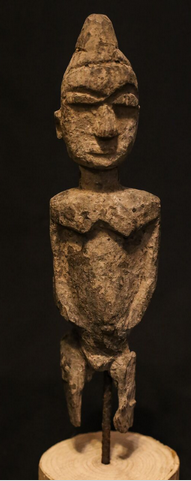
In Burkina Faso (South-West region, Gaoua), a country located in West Africa, we find the Lobi, an ethnic group that hides many mysteries and that surprises us because of the complexity of its art within an unparalleled formal simplicity.
This ethnic group has had the luck to meet with scholars who have given as fruit the study of the works, their functionality and the identification of the people who made them.
This exhibition wants to make known this ethnic group and the different studies carried out.
Bateba Bambar (Lobi Art, Burkina Faso, Source: Jesús Arjona Muñoz):
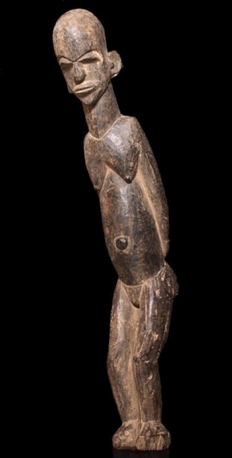
Purposes of the Exhibition “The Lobi. The complexity behind simplicity”
For a long time, African art has been discredited and treated as pure ethnographic objects, or as colonial trophies, today this phenomenon continues to occur more than we imagine. In addition, tribal art is considered a dirty art and unimportant to be considered that, art.
We do not know about his stylistic evolution, his functions, his authors, his techniques are unknown... aspects that would be vital when dealing with any Western artistic trend.
In the amalgam of ethnic groups that we find in Africa, all with their own culture, but with common roots deeply rooted in the land that are reinforced after the post-colonial process and independence movement, we find the Lobi, an ethnic group with diversity of functionalities within art, an art that is found between men and spirits. This art stands out from all the others because of the number of studies that have been carried out.
The purpose of this project is:
- Promote African tribal art and its culture.
- Introduce the Lobi culture of Burkina Faso, Ghana and Ivory Coast.
- Know the Lobi art, its functions and diversity.
- Give visibility and recognise the figure of the African tribal artist.
- To expose the private collections of collectors
Bateba Fi hin, Tyohepte Pale (Lobi Art, Burkina Faso, Source: Jesús Arjona Muñoz):
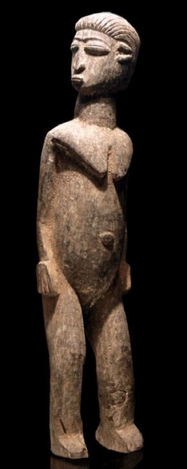
Organisation: Jesús Arjona and EENI Global Business School
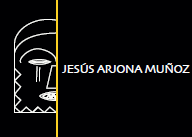
EENI Global Business School is very committed to the African Development in particular. One of the pillars of our commitment is the collaboration in the global promotion of the African History, culture and African Traditional Religions.
Disciplines and works:
- Woodcarving
- Tissue
- Bronze to the lost wax
Number of works: 60 - 80 works, according to space
Bateba Phuwe (Lobi Art, Burkina Faso, Source: Jesús Arjona Muñoz):
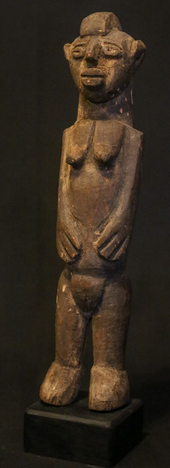
Period of the Exhibition “The Lobi. The complexity behind simplicity”:
30-45 days (according to the disposition of the institution)
Exhibition place:
The exhibition space can be any event room. Using showcases is necessary.
Sources of the Photos: Jesús Arjona Muñoz
Phuwe bateba couple, Bonk Zone (Lobi Art, Burkina Faso, Source: Jesús Arjona Muñoz):
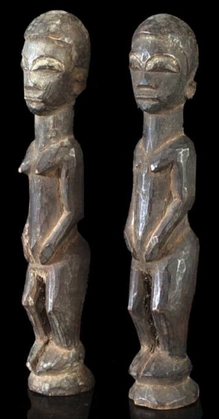
More information: International Trade and Business in Burkina Faso, at EENI Global Business School Website.
 EENI Global Business School
EENI Global Business School
 EENI Global Business School
EENI Global Business School
 EENI Global Business School
EENI Global Business School


 Tweet
Tweet